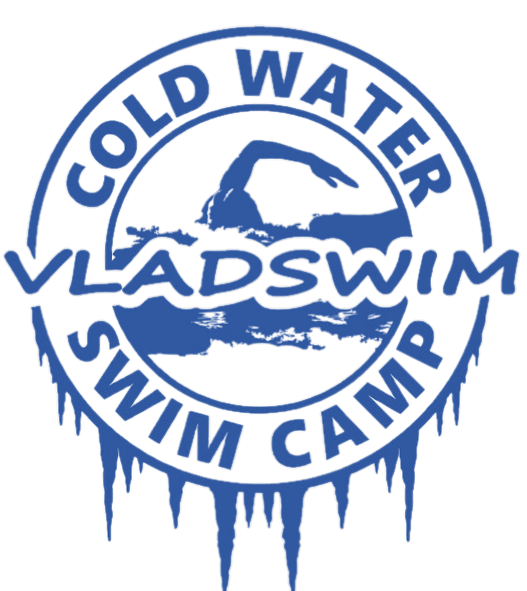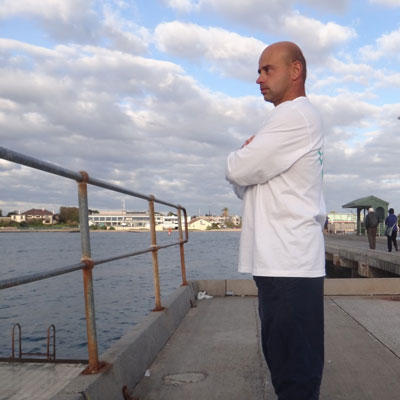
Designed to help you achieve your ultimate swimming goals.
T (+61) 4013754977
Email: info@vladswim.com.au
Vladswim Pty Ltd.
Andrew Boy Charlton Pool
Cold Water Swim Camp
DATE:
31st May Fri to 2nd June Sun 2024
WATER TEMPERATURE:
15-16°C
LOCATION:
Sydney, Brighton Le sands, Pavilion
SPECIALISATION:
Extreme marathon
Fees:
$600
Sydney Cold Water Swim Camp is designed for distance swimmers who are preparing for extreme marathon swimming events with a cold water element, such as: the English Channel crossing; the Cook Strait swim; the Manhattan Island swim; and the North Channel.
The camp includes long-distance swims in cold (14-15°C) water. One of the swims is 6-8 hours long and can be used as your official qualification swim for the English Channel.
The upcoming camp will focus on those swimmers attempting the English, North or other channel crossing this year (in the year of the camp) or in the following year.
The Camp program includes:
- Cold water swim sessions ranging from 1 hour to 8 hours
- One night swim
- Two lectures on planning and preparing for your event
- Practising nutrition while swimming to assist swimmers in understanding their specific feeding needs
- NOTE: your support person is required to attend camp to learn and practise nutrition feeds with you
- Working on swimming skills - pace, technique and feeding routines
- Team support– whilst swimming together, experience supporting and motivating each other
- A logbook, hoodie (t-shirt, beanie or else) and swim cap to help you remember the swim and the valuable information you will have learnt
- A chance to expand your swimming network - make new friends with swimmers with the same interest and keep in touch with them before, during and after the camp
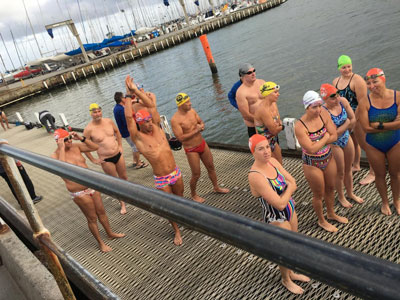
Vladswim coaches:
Vlad Mravec and Lawrence Stubbs are your experts who will guide you through the camp and ensure you get the best results for your investment.
Vlad, the head coach
Vlad, the head coach is the founder of the Vladswim program, which provides all level of swimming services from stroke correction at beginner to elite level through to coaching of an open water swimming squad.
Vlad’s expertise lies in developing effective pool and ocean swim sessions. These sessions cover all levels of intensity and skills to help swimmers achieve their long distance goals. He is passionate and has a clear understanding of how to structure training programs and plan for specific endurance swim events.
Vlad designed the camp program and manual and will share his extensive coaching and planning experience throughout your time on the camp.
Vlad also specialises in related fields such as nutrition and advice for support crews, built up through hands-on experience accompanying English Channel swimmers from 2012.
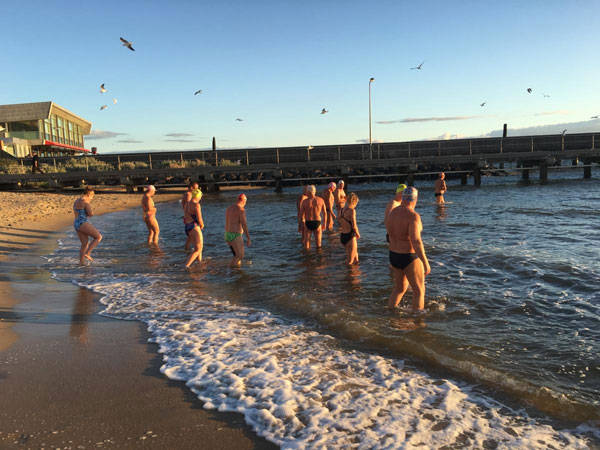
NOTE: you need to bring your own support person with you to the camp or an extra charge will apply
PACKAGE INCLUDES:
- Five cold water swims 1 - 3 hours
- One cold water night swim 1 hour
- One long cold water swim 8 hours
- Two experienced open water coaches
- Three lectures covering: Channel swim preparation; your eight hour swim and other preparation aspects
- You’ll also receive a camp manual/log book, swim cap and one merch item (such as hoodie)
NOT INCLUDED:
- Transport from and to camp
- Meals
- Accommodation
- Support person
ACCOMMODATION
We recommend SYDNEY, Novotel Brighton-Le-Sands (tel: 02 95956 5111. This location is perfect as you can walk to the beach in about 2 mins and this is where our swimming will occur.

CHECKLIST
- Support paddler and support crew!
- Swimwear - two pairs
- Swim cap
- Towel
- Goggles – two pairs
- Vaseline
- Warm clothes (track suit, jumper)
- Beanie
- 3-4 Glow sticks – for night swim
- Energy/ nutrition supplements
- Mesh bag for your swim supplements
- Drink bottles marked with your name
- Medications
FRIDAY : THE FIRST DAY
- 7:00 am meeting at the beach
- 7:30 am the first swim for 3 hour
- 10:30 am finish the swim
- 11:00 RSL Club lunch
- 2:00 pm meeting and talk
- 4:30 pm 2 hours swim
- 6:30 pm finish the swim
- free time, preparation for 8 hours of swim
SATURDAY: LONGEST SWIM
- 6:00 am - 8-hour swim
- 2:00 pm - rest and recovery
- 5:00 pm - lecture and summary of the 8-hour swim
- 7:00 pm - night easy swim 1 hour
SUNDAY: the last swim
- 7:00 am - 1.5 hours swim
- 9:00 am breakfast and talk
- 11:00 am - time go home
Schedule created by Vlad Mravec - Vladswim Head Coach
*Please note that the times of individual swims and lectures maybe slightly altered to group needs.
Vladswim's Cold Camp 2015
Swim one
Vladswim’s fourth annual ‘cold camp’ trip to Brighton, Victoria kicked off on the afternoon of Thursday 23 April with a brief introduction followed shortly by a 90 minute swim. The cold water swimming camp is aimed at distance swimmers preparing for extreme marathons, such as the English Channel crossing, Catalina Island and the North Channel swim. The aim of this camp is to let swimmers experience and acclimatise to the cold water, with temperatures ranging from 13 to 16°C.
This first swim was a short 90 minute introductory swim, getting swimmers used to the cold water, and getting their coaches and supporters to watch their body positions and their reactions in the cold water. The swim was an easy and casual one, encouraging swimmers to focus on their breathing and get used to their new 16°C environment.
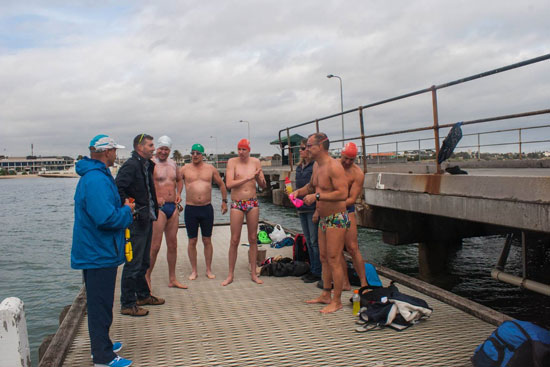 “The goal is to stay in the water as long as you can,” explained Vladimir Mravec, coach and owner of Vladswim squad. Vlad used this first swim to gauge the swimmers stroke rate and technique. After each swim, there is a briefing for coaches to check in with the swimmers, learn their weaknesses and see discuss what they need to fix. “Always, we are learning from the swims,” Vlad said.
“The goal is to stay in the water as long as you can,” explained Vladimir Mravec, coach and owner of Vladswim squad. Vlad used this first swim to gauge the swimmers stroke rate and technique. After each swim, there is a briefing for coaches to check in with the swimmers, learn their weaknesses and see discuss what they need to fix. “Always, we are learning from the swims,” Vlad said.
On a previous camp, a swimmer, Rachel, only managed two out of three hours on a swim before suffering from hypothermia. With nothing different, except for a change in thinking, she dove in the next day and completed an eight hour swim in the cold water.
Vlad was joined this year, by Lawrence Stubbs, who previously worked as a Commander in the Royal Australian Navy and now owner of Thirroul Swim Adventures, a squad for swimmers in the Illawarra region. Lawrence briefed the group on one of the more important discussion points at this first meeting was safety. “Some of you are very likely to experience hypothermia,” he said. Lawrence participated in cold camp the previous year and suffered from it himself. Despite this set back, he still went on to complete the English Channel later that year.
Swimmers who joined our camp:
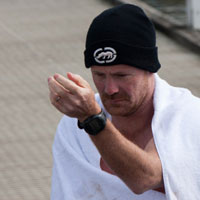
Des Mulcahy - Cold Water Camp 2015 A Secretary - General Manager at Tattersalls Club who will also be swimming the English Channel this year.
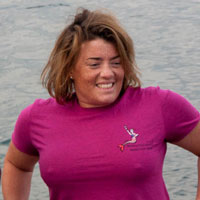
Tori Gorman - Cold Water Camp 2014, 2015 A Program Manager at Apple who already has 21 marathon swims under her belt, including the English Channel and Manhattan Island. This year she will take on Catalina, of the coast of California.
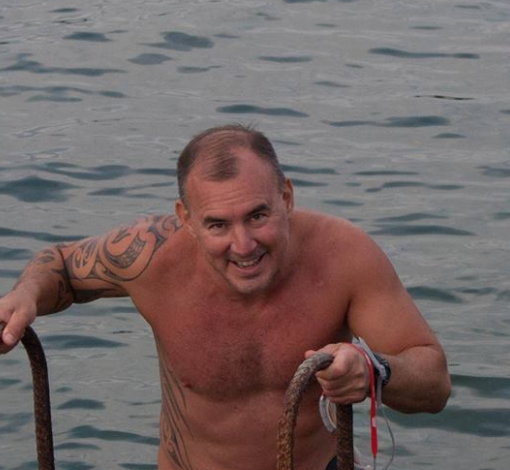
Marty Filipowski - A Director of Corporate Communications at Dell who is another seasoned extreme marathon swimmer, having also completed the English Channel and will be swimming Catalina this August.
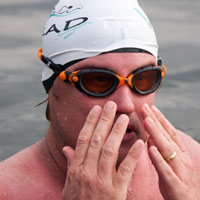
Kane Orr - Cold Water Camp 2015 - A Project Analyst at Geoscience Australia. Kane is the first person from Canberra to qualify for the English Channel swim.
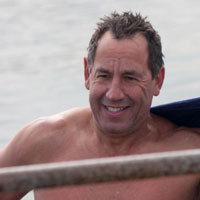
Andrew Stewart - A Real Estate Agent at McGrath who will be the third of Vlad’s group swimming the English Channel. His swim will be raising money for Black Dog.
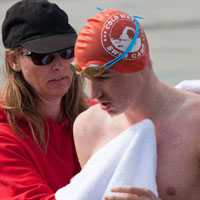
Benjamin Freeman - Cold Water Camp 2014, A 17-year-old from Canberra, in the middle of completing year 12 at school, who after only signing up in December last year, will be tackling the English Channel this August. He will have a taste of the Channel beforehand, being a part of a relay team of six that make their way across the channel, one hour at a time.
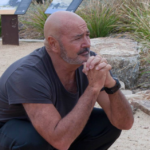
Dean Summers- Cold water camp 2014, 2015, 2016, 2017, copleted English Channel, North Channel, Molokai Channel, Catalina Channel, Manhattan Island
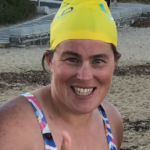
Laura Marshall, NSW
Arch to Arch 2018,
Cold Water Camp 2017,2018
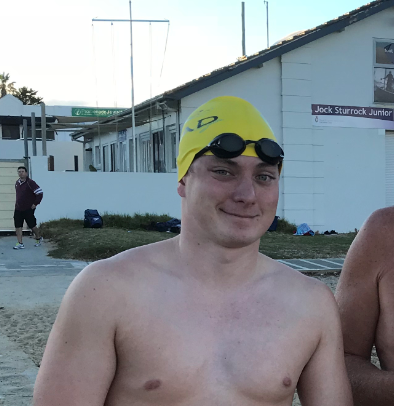
Ben Jimmieson, QLD
Cold Water Camp 2017, 2018
English Chanel 2018
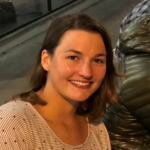
Georgia Hall, NSW
Channel swim 2019
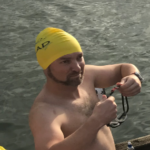
Duncan Tebb, NSW
Cold Water Camp 2018, English Channel swim 2018
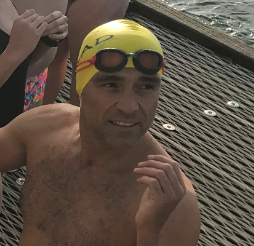
Michel Saad, NSW
Cold Water Camp 2018, English Channel swim 2018
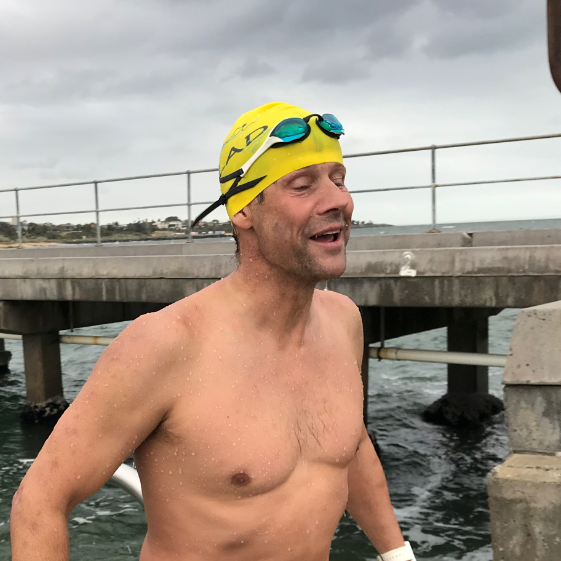
Thorsten Trupke, NSW
Cold Water Camp 2018, English Channel swim 2018
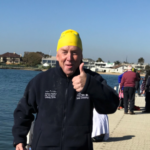
Rod Watkins, VIC
Cold Water Camp 2018, English Channel swim 2018
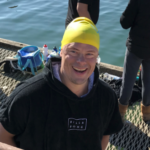
Pierre Lord, NSW
Cold Water Camp 2018,
English Channel swim 2019
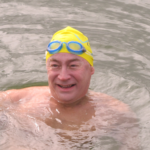
Sam Abeshouse, NSW
Cold Water Camp 2017, 2018
English Channel swim 2018
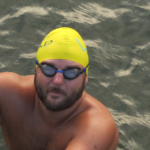
Brendan King, NSW
Cold Water Camp 2018
English Channel swim 2019
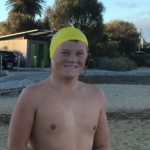
Ned Wieland, NSW
Cold Water Camp 2017, 2018
English Channel swim 2017
Catalina Channel 2018
Manhattan Island 2018
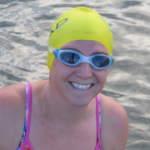
Rachelle Silver, NSW
Cold Water Camp 2016, 2017
English Channel swim 2017
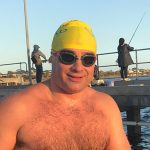
Victor Pineiro, NSW
Cold Water Camp 2019
English Channel Swim 2019
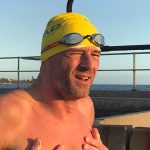
Michael Pranckel, NSW
Cold Water Camp 2019
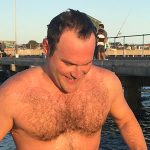
Eli Ball, NSW
Cold Water Camp 2019
Channel 2020 Butterfly swimmer
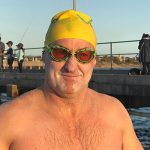
Eric Bateman, NSW
Channel 2020
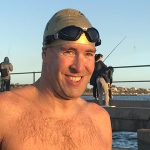
Bob Tarr, NSW
Cold Water Camp 2018, 2019
Channel Swim 2018
Catalina 2019
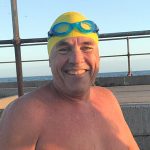
Andrew Keay , NSW
Cold Water Camp 2019
English Channel 2019
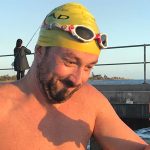
Niall O'Rourke, NSW
Cold Water Camp 2019
Channel 2020
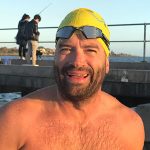
Eduard Von Slawik, NSW
Cold Water Camp 2019
Channel 2019
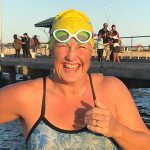
Gilly Lynch, NSW
Cold Water Camp 2019
Channel 2020
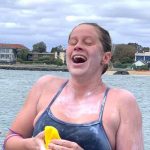
Emma Radford, NSW
Cold Water Camp 2018, 2019
Channel 2019
Catalina 2019
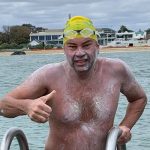
Richard Langridge, NSW
Cold Water Camp 2019
Channel 2019
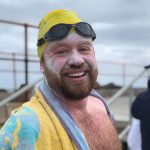
Chris Watson, NSW
Cold Water Camp 2019
Channel 2019
As the temperature cooled down and the wind picked up, the group of swimmers shed their beanies and coats and dove into the water, screaming a few obscenities on impact.
“When you first jump into the cold water, your body experiences shock,” Lawrence explained. “Your breathing is shallow but you can yell under water to relax the lungs.”
The swimmers had to prepare in advance for the cold water. Their acclimatisation started around three weeks before they even stepped foot on the beach in Brighton. This included showering in cold water each morning and evening, having cold water baths with ice, avoiding warm places or wearing heavy clothing, and mentally ridding their mind of the word ‘cold’.
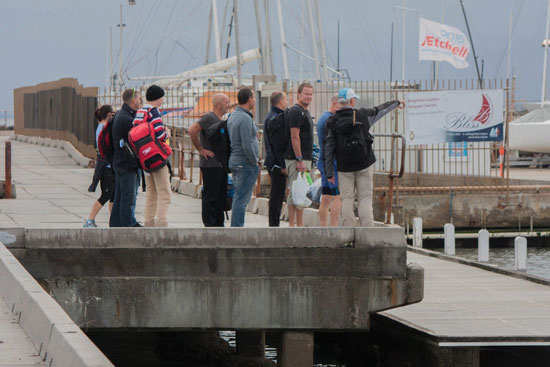 This last part is especially important for supporters as well. “The word ‘cold’ is no longer part of your vocabulary,” Vlad said. “If the swimmer hearts it, they will get cold, even if they are in 28 degree water.” One of his tips for supporters is to keep their outer layer of clothing the same, so that the swimmer won’t be able to see if extra layers have been added. “Of they see you rug up more, they will automatically think, ‘it’s getting cold,’ and then they will get it into their head that they are cold.”
This last part is especially important for supporters as well. “The word ‘cold’ is no longer part of your vocabulary,” Vlad said. “If the swimmer hearts it, they will get cold, even if they are in 28 degree water.” One of his tips for supporters is to keep their outer layer of clothing the same, so that the swimmer won’t be able to see if extra layers have been added. “Of they see you rug up more, they will automatically think, ‘it’s getting cold,’ and then they will get it into their head that they are cold.”
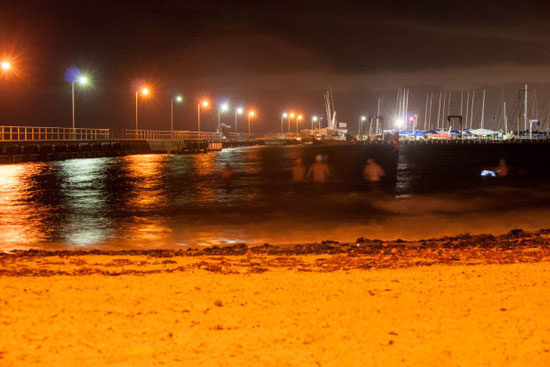 Swim two: Night Swim
Swim two: Night Swim
With only an hour between swims, the group had just enough time to dry themselves, have a warm drink, and shiver from the cold, before heading back out to do it again. This time for only an hour. In the dark.
The wind had died down, but the water was still cold, if the screeches and “Brrrr!’s” were anything to go by. The Middle Brighton pier still had fishermen with several rods each, lining up along the pier. Lit up with nothing more than a couple of glow sticks each, it wasn’t uncommon for swimmers to bump into each other or drift. “You’re way off course,” Marty yelled out to his swim partner, Tori, a shadowy body only discernible by the orange glow stick sticking out of her goggles.
The swim turned out to be quite peaceful despite a few moments of swimmers nearly knocking heads with each other and Tori woman nearly losing a contact lens. The swimmers all commented on how peaceful the water was.
“It’s cold for the first minute you get in, but then your core temperature normalises and from then it’s alright,” Kane said. “Getting out is the worst bit. By the time I walk to the crossing, I’ll be shivering.”
It wasn’t until breakfast the next morning that it was revealed that not every swimmer had such an enjoyable time. “Everyone said it was so relaxing and enjoyable, I was just cold!” Andrew confessed.
Swim three
Conditions were pristine for the third swim of the camp. This time the swim lasted for three hours, getting the swimmers used to staying in the colder water for a longer period of time. It also gave them a chance to practice the course for the 8 hour swim the next day, as well as finalise their feeding strategy with swimmer feeds lasting around 20 seconds and ranging from every 20 to 45 minutes.
This swim involved leaving the comfort of Brighton’s Marina and venturing into choppier and rougher waters, but the wind held off, the water was nearly still and the sun peeked out from the clouds to keep the supporters warm.
Coach Vlad, and Dean’s daughter, Michelle, each paddled a kayak to guide the swimmers and provide them with support.
One of the most important aspects of a cold water swim is keeping up a reasonable pace. If you swim too fast to avoid the cold, you will tire yourself out. If you swim too slow, you run the risk of hypothermia. “The Channel swim is unlimited time,” Vlad said. “Two hours can feel like six hours or six hours can feel like two.”
“Smile, accept it, and be prepared to be there as long as you need to be.”
After an average of two years of training for the English Channel, it is not about fitness. By that stage the swimmers will already be as fit as they need to be. The challenge from this stage is a mental one. “If you think about hypothermia, you can drive your body towards it, spiral into it,” Vlad said.
After the swim, the group sat down to debrief. “It was cold,” Dean said, “I felt cold, but I didn’t mind it.” For Dean though, it felt a lot longer than three hours. Marty and Tori, both seasoned extreme marathon swimmers who have been on several cold camps previously, they have learned to embrace the cold, focus on their breathing and not let it bother them.
Swim five
While the fourth swim was just a short one hour swim the night before, the fifth swim took place on Saturday 25 April, Anzac Day. Waking up before the sun, and with a blanket of clouds overhead, the group trudged down to Brighton Baths Health Club where they joined local swim club, The Icebergers for an eight hour swim. Swimming for at least six hours on this swim is a qualifier for the English Channel.
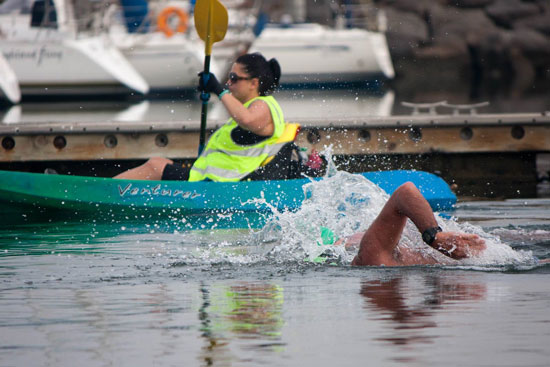 This event highlighted the importance of mental strength. The conditions were similar to the day before, but for each swimmer the experience was different. Despite struggling on the three hour swim the day before, Dean felt great during this longer event. “Can I swim the Channel now,” he asked after the swim. He smiled most of the way through. “I could’ve easily done another 5 or 6 hours,” he said, “I feel confident.
This event highlighted the importance of mental strength. The conditions were similar to the day before, but for each swimmer the experience was different. Despite struggling on the three hour swim the day before, Dean felt great during this longer event. “Can I swim the Channel now,” he asked after the swim. He smiled most of the way through. “I could’ve easily done another 5 or 6 hours,” he said, “I feel confident.
Des started off quite rattled, as he found that he had the wrong swimming apparel on, meaning he would not be able to use this swim as a qualifier for the Channel. “The first lap was incredibly awful. I wasn’t cold, but not knowing where I was going, there was a lot of uncertainty. I felt disoriented.” During the swim, he struggled with boredom but the group helped to support each other. “It was great having Dean there on the last lap. It took a lot of strength to get there and do that last one, but he psyched me up.”
Ben, the 17-year-old from Canberra, broke the swim up into two hour increments. “Two hours ticked, four hours ticked. After four, I was just focusing on six hours,” he said. “I got to six hours and mentally, I was just done.”
“I didn’t realise how big of a toll counting down the hours would be,” he admitted. Having been a competitive racer throughout his entire swim career, Ben needs to get used to setting a good pace and not setting goals if he wants to complete the Channel.
Not all of the swimmers fared well. Andrew struggled with the cold. He struggled with fatigue and felt lethargic. His stroke rate decreased below 50 strokes a minute, meaning his body couldn’t generate enough heat. He struggled to communicate and slurred his words. Andrew experienced hypothermia. Although he didn’t realise it himself, his support team noticed the signs. “We tried to keep you in as long as we could, we called in a couple of others to observe you. But we had to call it,” they said.
The debriefing after this longer event was an emotional one for Thirroul Swim Adventures coach, Lawrence. “You were all so different, but so tenacious,” he said. “Andrew went to hell today. He doesn’t realise how close he was to Lucifer.”
“Being there, seeing you every hour, seeing you adapt, change, come to terms with what you had in front of you, just getting the job done, being there with you all was very special.”
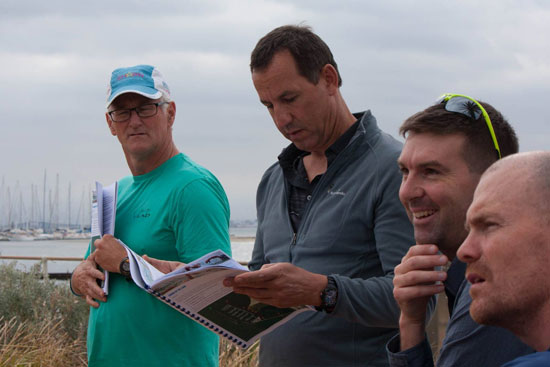 Never known for being a man who goes easy on his team, Vlad had the group back in the water just a few hours later. This time, there were no laps to swim, and it was more about just getting back into the cold water again.
Never known for being a man who goes easy on his team, Vlad had the group back in the water just a few hours later. This time, there were no laps to swim, and it was more about just getting back into the cold water again.
Swim seven
The final swim was a short one lap race at 8am on the last morning, against The Icebergers. The group of 28 were, “comprehensively flogged by Ben,” an Iceberger admitted.
The camp ended with breakfast at the Royal Brighton Yacht Club where swimmers swapped tips and talked about their own experiences.
Cold camp is not just about swimming and then going home, Vlad said. “It’s about learning. It’s about knowing what you don’t like doing, and doing it. It’s about finding your weaknesses and working on them. It provides an ability to share ideas and discuss strengths and weaknesses. It promotes a sense of achievement and camaraderie that is necessary for a swimmer to achieve enormous goals.”
